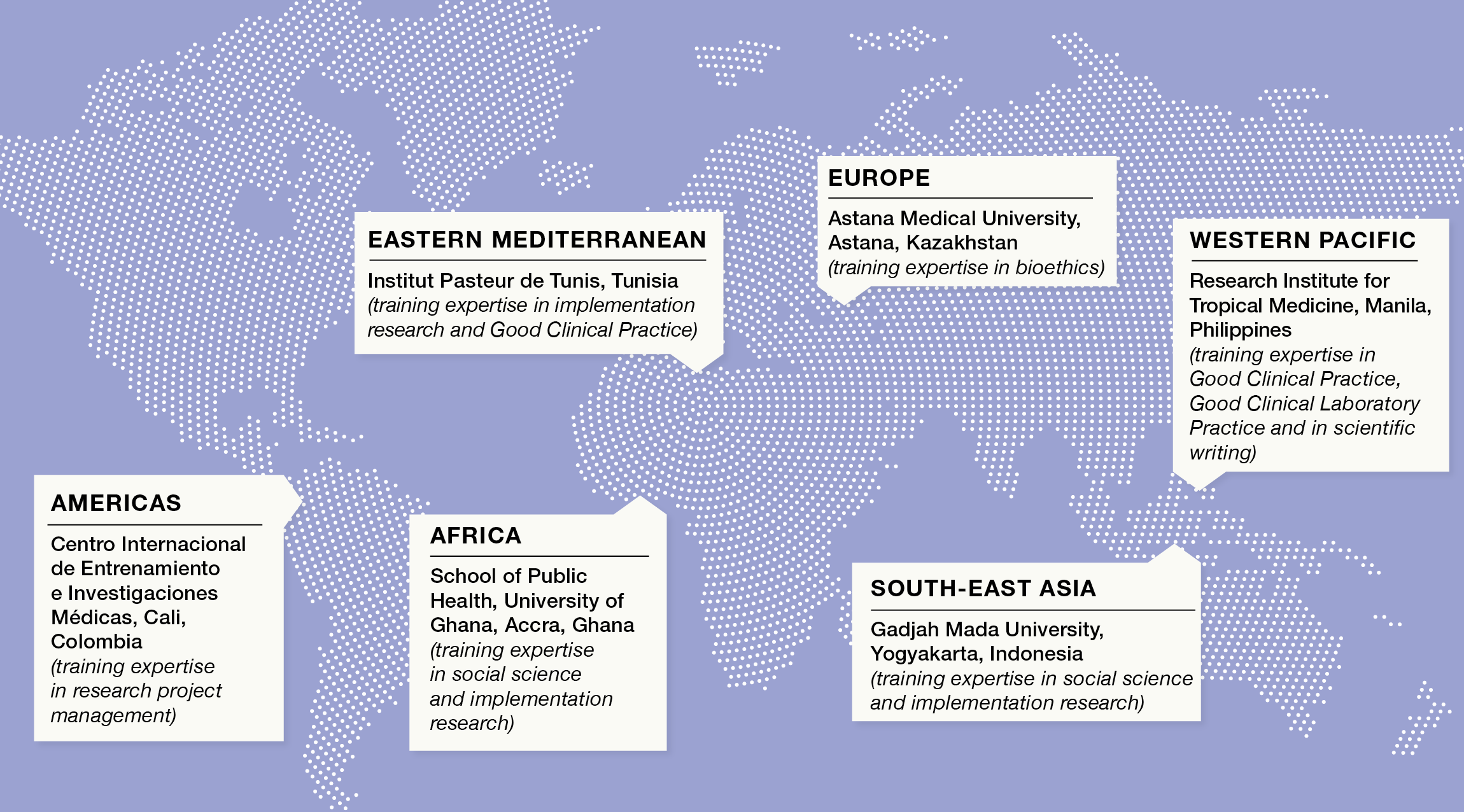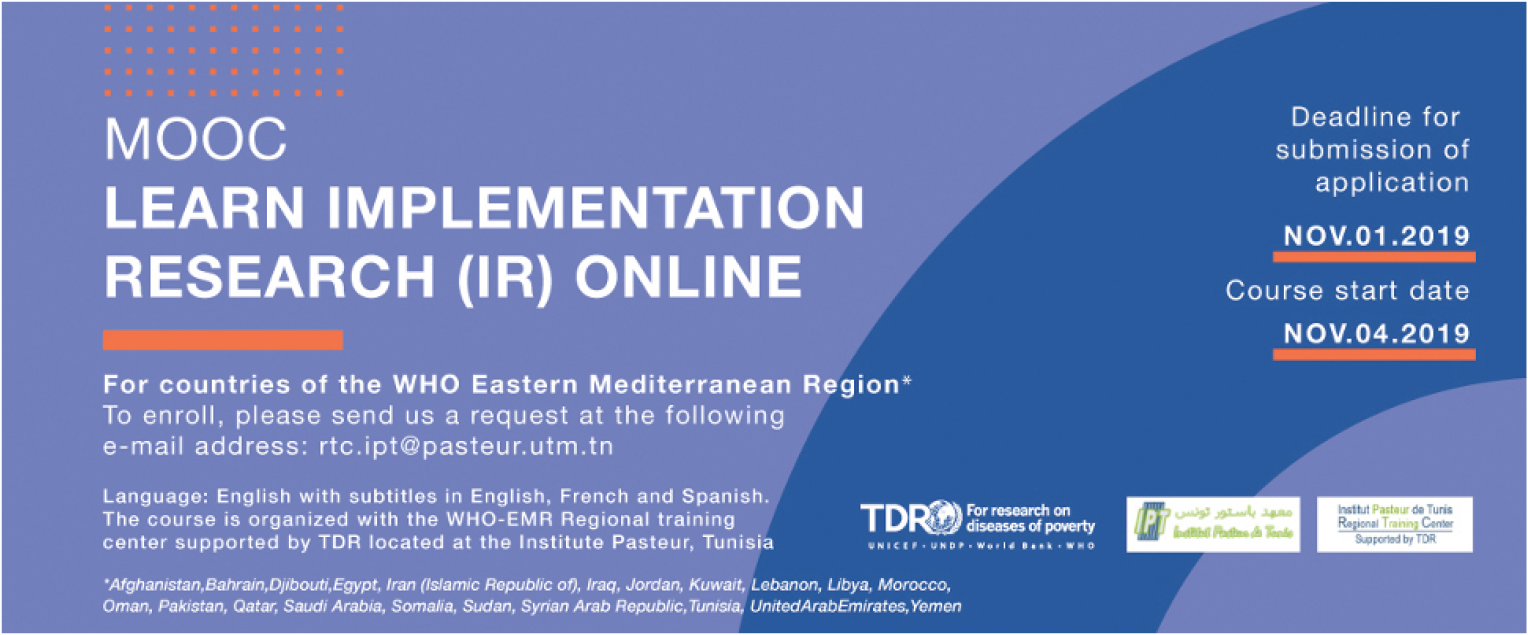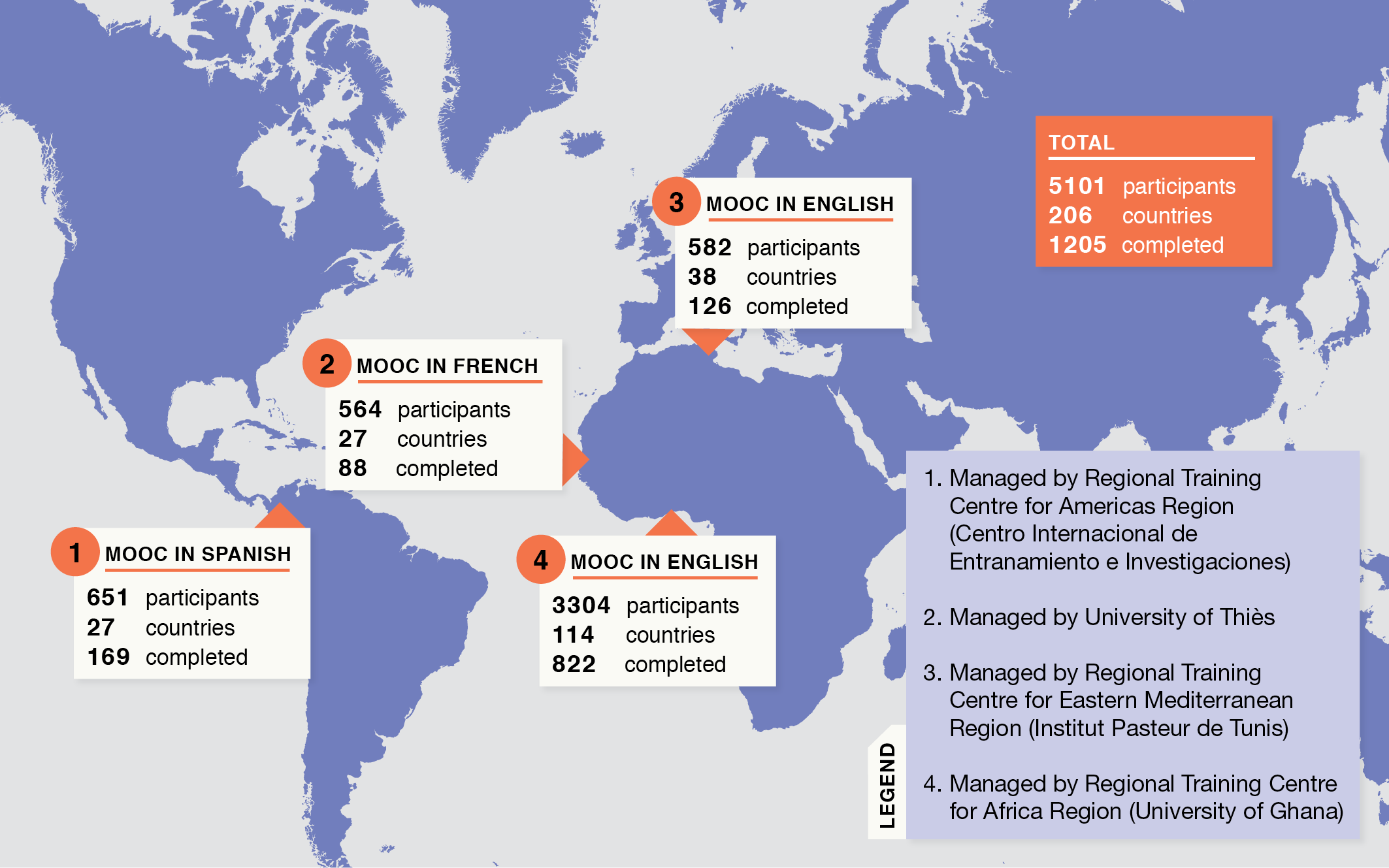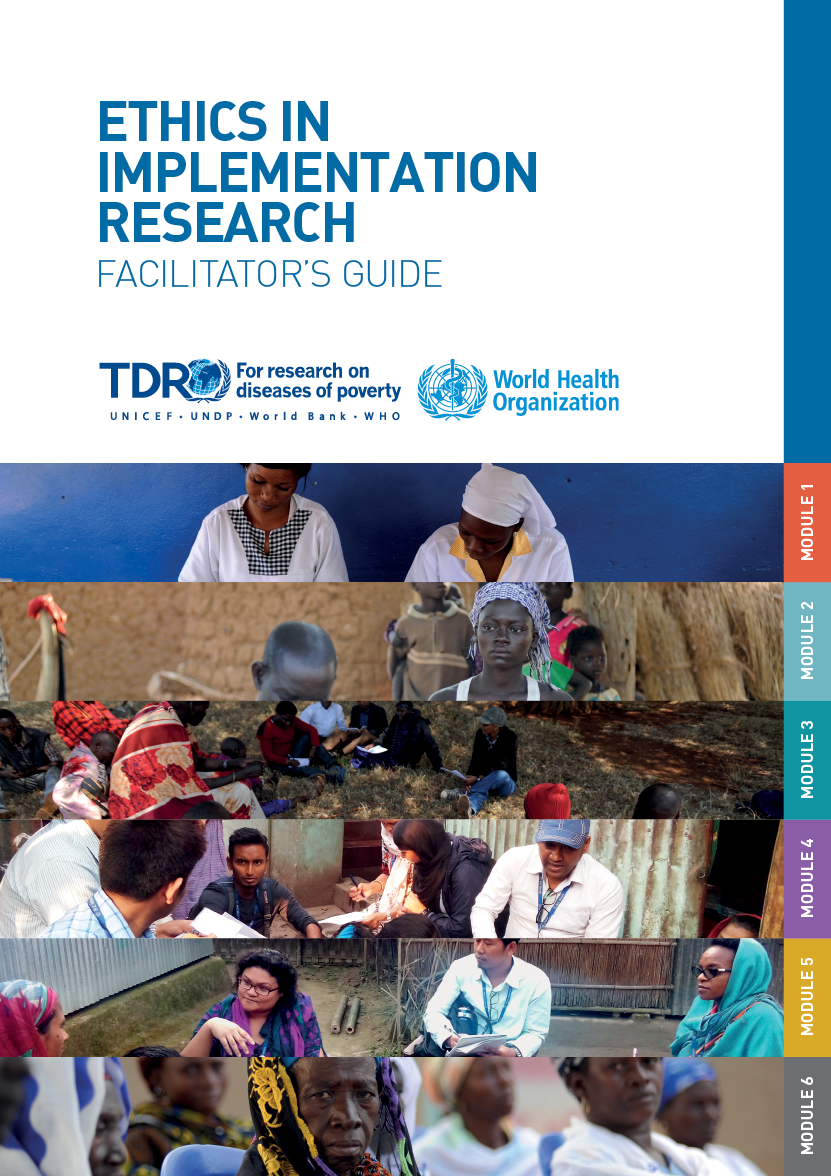



Strengthening
research capacity


Regional Training Centres: Fostering learning
and collaboration within and across regions
TDR supports a network of Regional Training Centres
(RTCs) located in each WHO region, which have been selected on a competitive basis to conduct and disseminate training courses on good health research practices and IR.
The package of skills-building IR courses developed by
TDR comprises: the Massive Open Online Course (MOOC)
on IR, Basic Principles in IR course, IR Toolkit and Ethics
in IR training course.
Regionalization of these courses using train-the-trainer (TtT) methodology and training workshops enables TDR to work more closely with the end-users and become more relevant to regional needs, empower centres based in the regions to serve as training hubs, and utilize existing expertise in disease endemic countries.
Regional Training Centres supported by TDR












TDR fellows participating in postgraduate training scheme, in Dkaha, Bangladesh



Massive Open Online Training Course (MOOC) on IR
The Regional Training Centres have played a critical role
in the dissemination and management of TDR’s MOOC on IR.
Participants learn the core concepts of IR, including how to:






Case studies are introduced, presented and interpreted by experienced public health researchers, practitioners
and academics. The MOOC was developed in English, with subtitles available in English, French and Spanish. Translations into Chinese and Russian are under way.







Results
In 2019, four sessions of the MOOC (two in English, one in Spanish and another in French) were conducted, attracting a total of 5101 participants from more than 200 countries.
A social media announcement for the MOOC course for the Eastern Mediterranean region managed by Institut Pasteur de Tunisia.

Participation in Massive Open Online Course (MOOC) by region



Ethics in IR training course:
Ensuring ethical conduct of implementation research
In June 2019, TDR and WHO launched a new training course on ethics in implementation research to ensure appropriate engagement with research subjects and relevant communities and to safeguard against any potential harm.
The challenge
As with all research involving human subjects, IR protocols must be reviewed by research ethics committees.
However, given the “real life” context of IR, it is important that researchers and research ethics committees are familiar with the specific ethical issues of IR. The need was therefore identified to develop guidance for researchers and research ethics committees on the ethical implications of IR.
The solution
TDR and WHO’s Health Ethics & Governance Unit, both part of WHO’s new Science Division, have jointly developed a training course for researchers and research ethics committees on the important ethical considerations in IR.
The course comprises six interactive modules interspersed with activities including country case studies, role play
and quizzes. “This training course meets an important need to address ethical considerations in implementation research conducted in real-life settings,” said WHO Chief Scientist Soumya Swaminathan. “TDR and WHO will facilitate country-led train-the-trainer workshops to help disseminate this training course.”





















Implementation research is key to improving programmes for children in ‘real world’ settings, but must be done while protecting communities and children. As a TDR co-sponsor, UNICEF therefore welcomes this new training course on ethics in implementation research.”
- Stefan Peterson
Chief of Health, UNICEF






